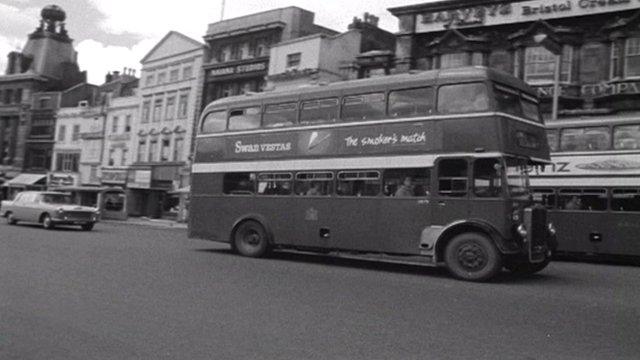A city of protest: Bristol’s history of resistance
- Published
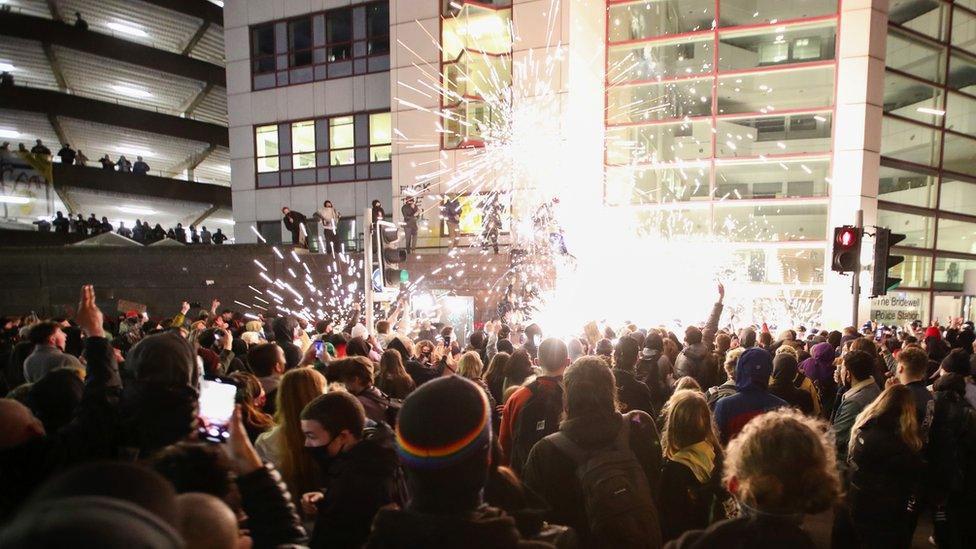
Thousands joined the Kill the Bill protest on Sunday, but police said it was later 'hijacked by extremists'
A city of protest throughout history, Bristol has a rich timeline of resistance.
Some have sparked change for good while others have ignited confrontation and rioting, like the violent clashes with police at the Kill the Bill demonstration on Sunday.
The city's counter-culture identity reaches back through the centuries and includes notable events in history that have seen it take the spotlight on a national and international stage.
So how is modern day Bristol influenced by echoes of its protest past?
Dr James Watts, a teacher and researcher in history at the University of Bristol, is investigating the city's heritage of protest.
It comes as part of the We Are Bristol History Commission, set up by mayor Marvin Rees in response to the toppling of the Edward Colston statue during a Black Lives Matter protest last June.
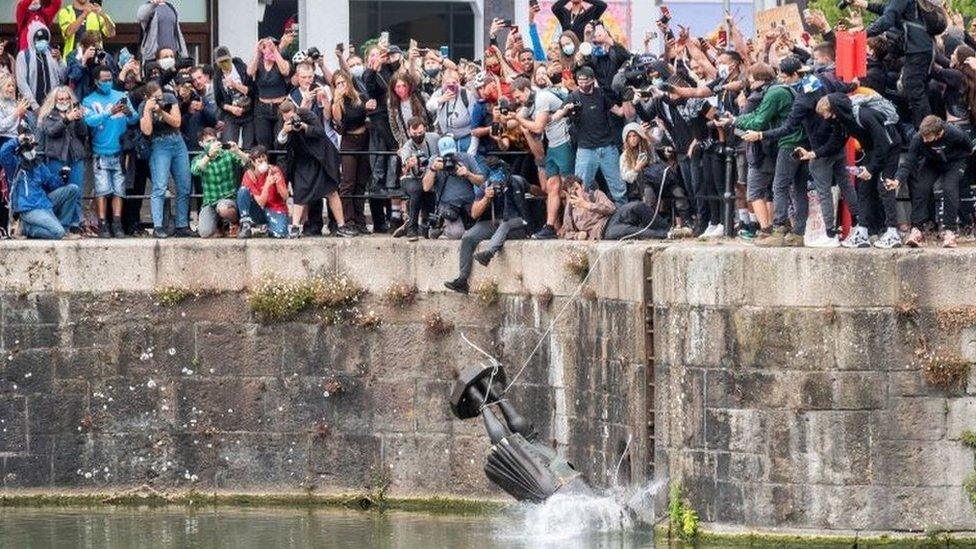
The statue of slavetrader Edward Colston was thrown into Bristol's harbour after a Black Lives Matter protest in June
He said: "There is a long history of protest in Bristol and a radical self-identify is more prevalent here, but why Bristol and not other cities is a difficult point.
"Bristol has always been a city of protest with an alternative identity that pushes back on those mainstream or established narratives.
"Protest is very richly woven into the city's history and I think the people of Bristol today are influenced by that narrative of protest."
Another factor could be the geography of the city, he says.
"Centres of protest like Stokes Croft or St Paul's are a stone's throw away from more affluent areas like Clifton, where you also have a high student population where people are very interested in a different way of living."
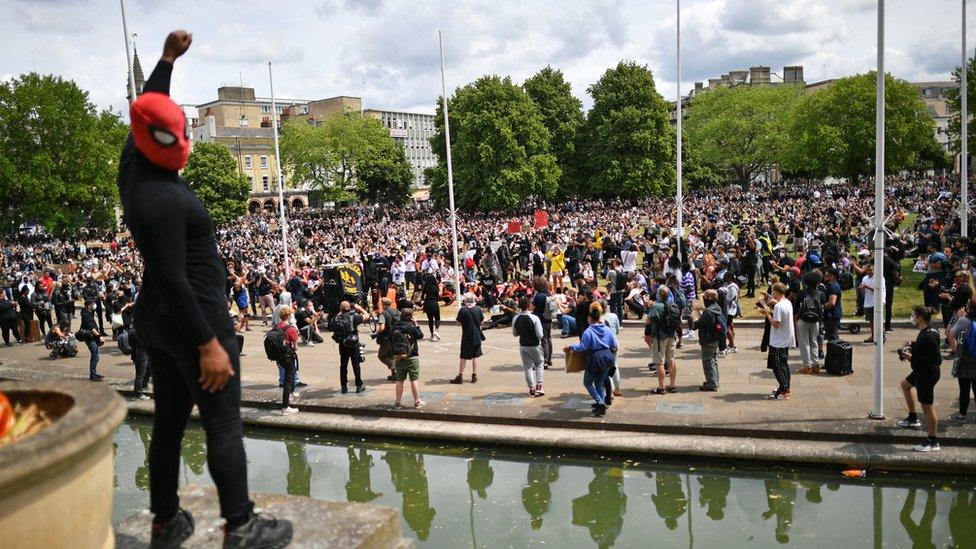
Thousands took part in the Black Lives Matter protest in Bristol city centre
Dr Watts cites the Bristol Bridge riots in 1793 as the first notable clash with the establishment in the city.
"This was about the toll on the Bristol Bridge, the main bridge across the river, and it was seen as one of the most serious of the 18th century - soldiers were called in, 11 people were killed and 45 people were injured."

Timeline of protests
1793: The Bristol Bridge riots
1831: Queens Square Reform riots
1963: The Bristol bus boycotts
1980: St Paul's riots
2011: Stokes Croft Tesco protests and riots
2019: Extinction Rebellion protests
February 2020: Greta Thunberg climate change rally
June 2020: Black Lives Matter protests
A century later in 1831 the Queen Square riots took place when Bristol was swept by violent clashes for three nights in opposition to the House of Lords blocking a popular electoral Reform Bill.
Around 100 buildings, including the mayoral Mansion House, Bishops Palace and Custom House, were burned down.
Hundreds of protesters died, 90 people were sent to prison and four people were hanged.
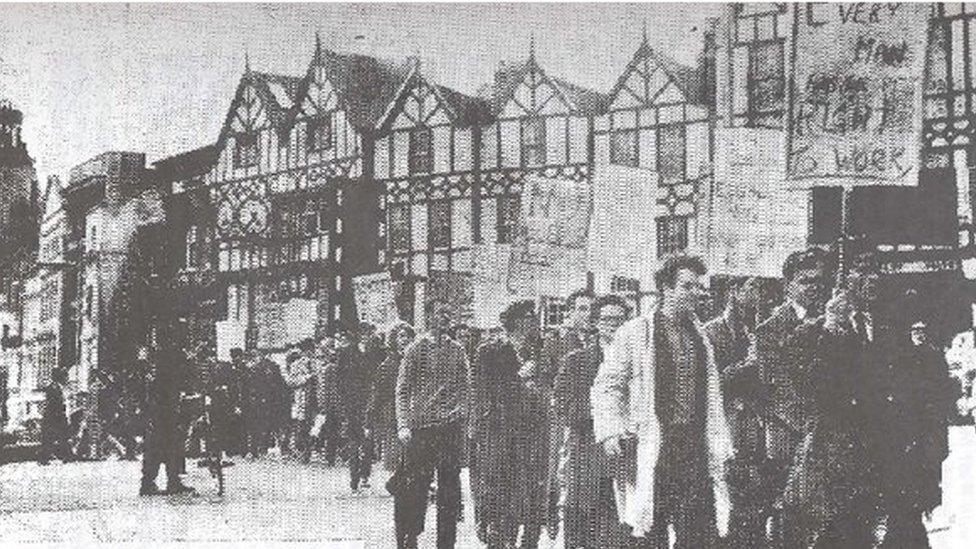
A newspaper cutting shows students marching in Bristol in protest against a "colour bar" on the buses
Writer and historian Dr Edson Burton said Bristol had a history of socialist movement which created an "articulate and organised working class from the 19th century".
He said: "High levels of inequality in Bristol are part of the fabric from the 18th century, particularly in terms of class, and there has always been a strong trade union presence and Methodist movement here which created a social awareness and a hub for working class socialist thinking.
'Generalised unease'
"There are people across generations in Bristol who have taken action which makes protest normative, for generations here today it is not a question of whether you take action, but how you take action."
He added rioting had historically been "a frustration of the people, with a more generalised unease that makes it harder to control so they escalate and take on their own narrative".
Fast forward to the Bristol bus boycott in 1963, which arose from the refusal of the Bristol Omnibus Company to employ black or Asian bus crews.
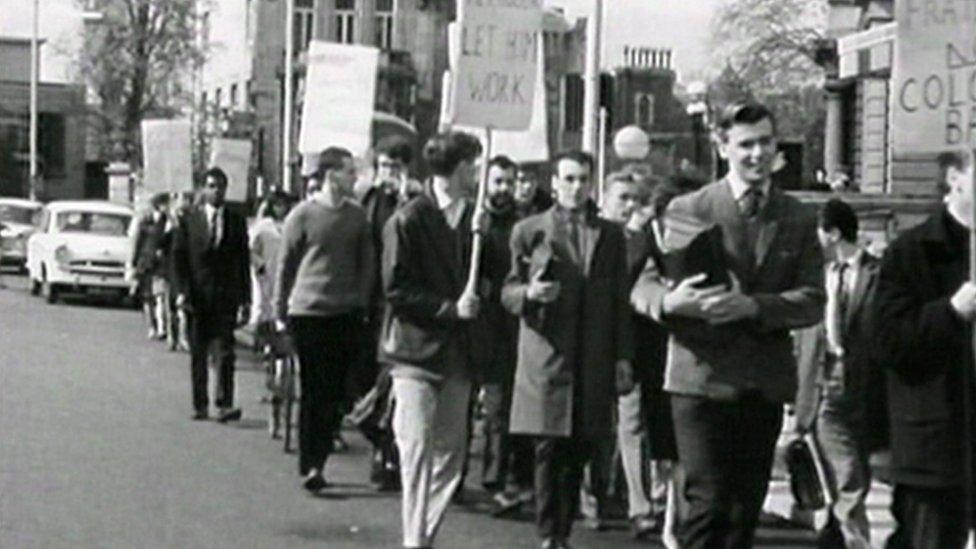
The Bristol Bus Boycott sparked a protest which attracted national attention and ultimately led the way to the country's first ever race discrimination law
Led by youth worker Paul Stephenson and the West Indian Development Council, the boycott of the company's buses by Bristolians lasted for four months until the company removed the policy.
The boycott attracted national and international attention and helped pave the way for the UK's Race Relations Acts of 1965 and 1968.
Dr Burton added: "Protests like the Bristol Bus Boycott were organised with clear aims and strategies which minimises demonstrations turning into something different."
Regarded as heralding the start of a decade of unrest in English cities and forcing racism into the spotlight, the St Pauls Riots in 1980 were among the worst disturbances Bristol had seen - with the people of St Pauls battling with police after a raid on the Black and White Café.
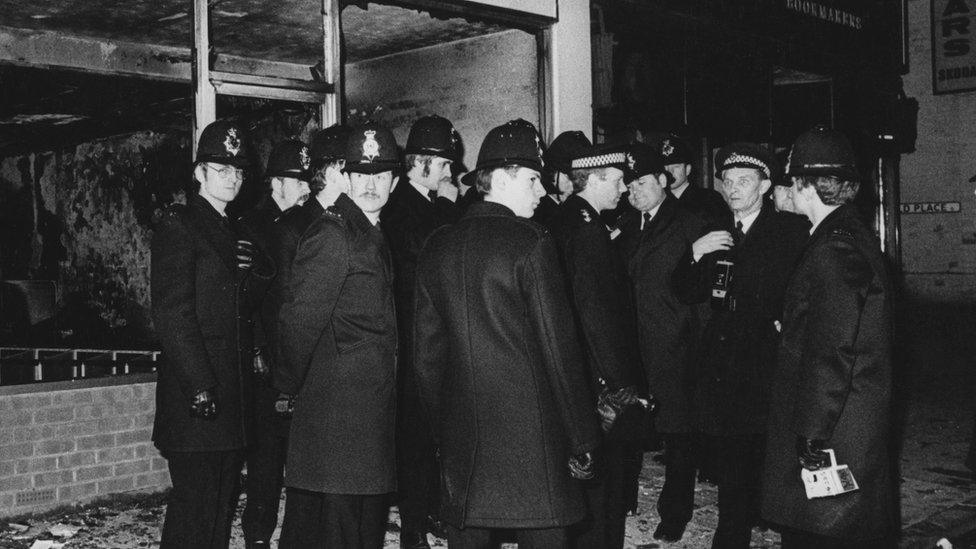
The St Pauls riots were among the worst disturbances to ever shake Bristol
After several hours of rioting, 130 people were arrested and 25 people were hospitalised.
Some involved in the disturbances argue a racist police force provoked it, but officers involved in the raid maintain they were trying to prevent crime.
The Stokes Croft protests and riots in 2011 grew from objections against a new Tesco store in the area well known for its independent businesses.
Two nights of violence broke out after police raided a squat where officers believed petrol bombs intended for the Tesco shop were being made.
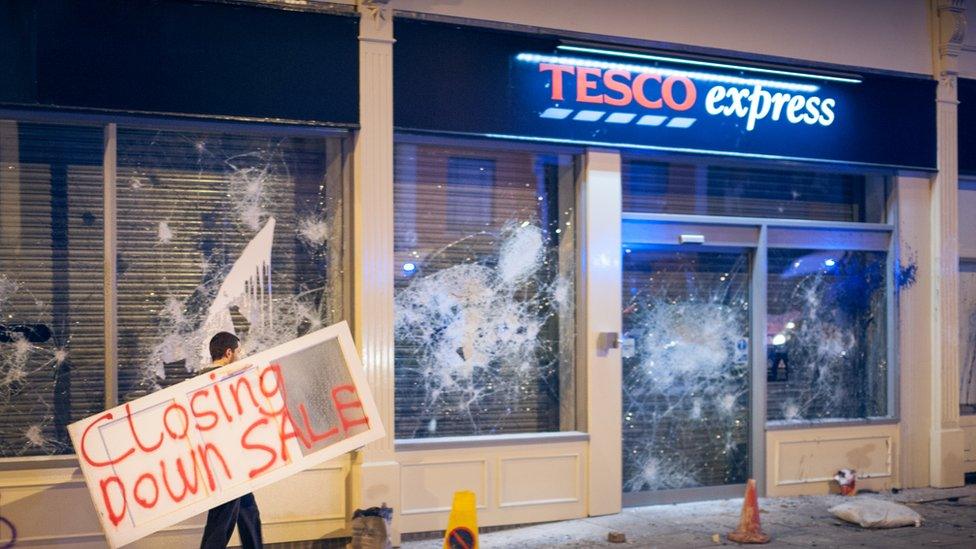
The Tesco store in Stokes Croft was badly damaged during the riots
Eight officers were injured and several arrests were made following clashes between around 300 protesters and around 160 police.
A third night of rioting followed a week later after a further peaceful protest against the presence of Tesco.
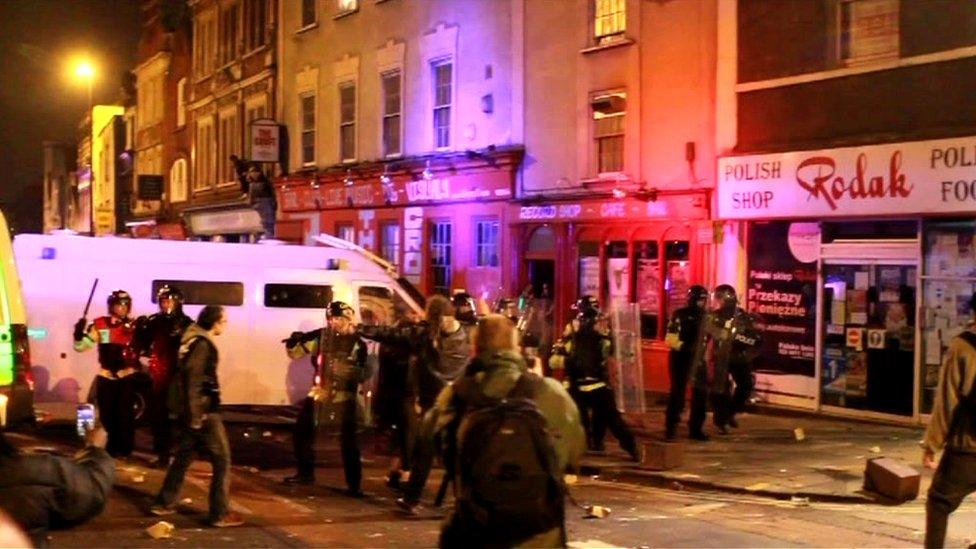
The rioting led to several court cases
Throughout 2019 Extinction Rebellion protesters staged several blockades of roads in Bristol and in February last year 15,000 people attended a rally by environmental campaigner Greta Thunberg.
The Black Lives Matter protests in June 2020 saw Bristol make headlines around the world once more after a statue of Edward Colston was toppled and thrown into the harbour.
Police were praised for their handling of the largely peaceful protest for deciding not to intervene and the event led to the city having to confront its slave-trade heritage.
Police said a "tactical decision" was taken by officers at that protest not to intervene.
But at Sunday's Kill the Bill protest, Chief Constable Andy Marsh, of Avon and Somerset Police, said an event that started peacefully in College Green had been "hijacked by extremists", by "people who were determined to commit criminal damage".
Related topics
- Published21 March 2021
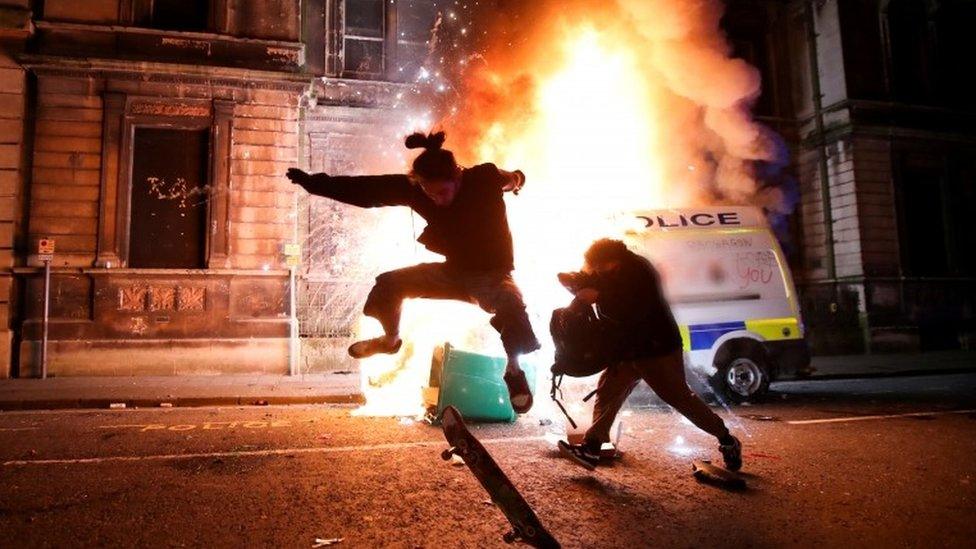
- Published22 March 2021
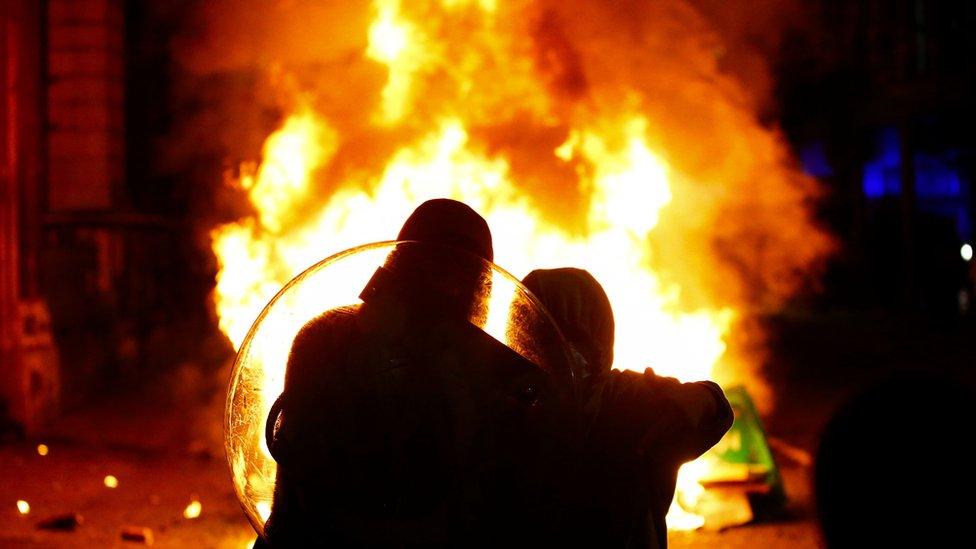
- Published21 March 2021
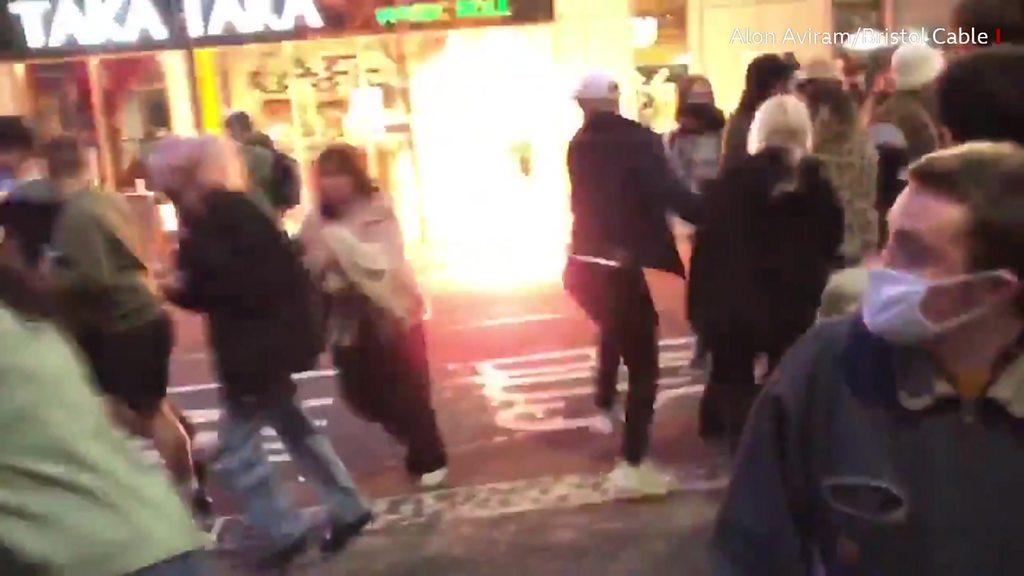
- Published2 April 2020
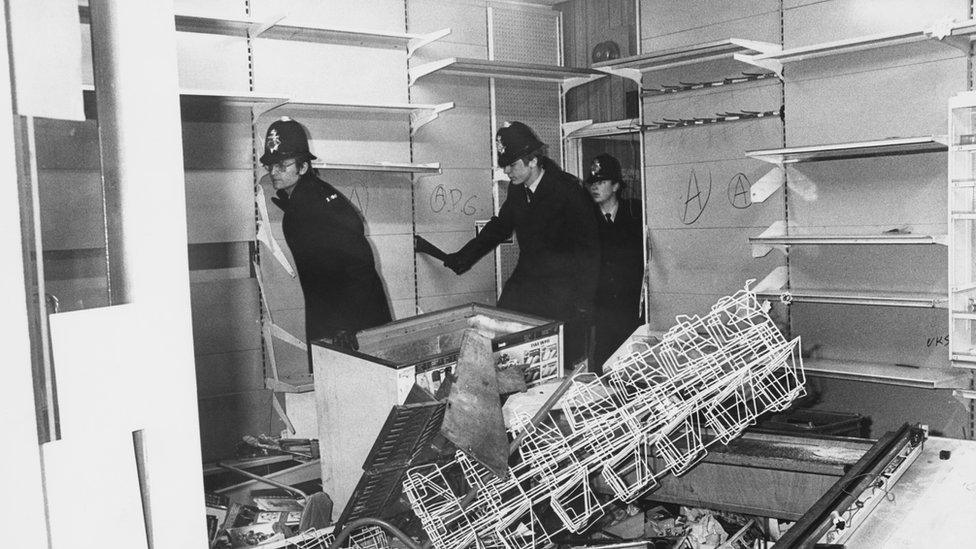
- Published25 February 2013
